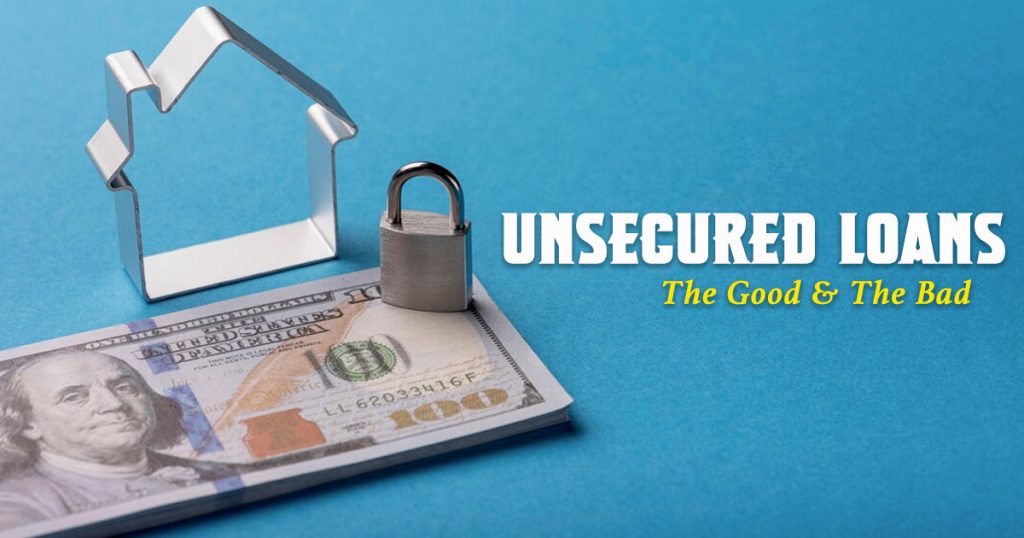Not all loans work the same way. Some need you to back them up with something valuable, like your car or house, while others don’t. These are called secured and unsecured loans. If you’re thinking about borrowing money but don’t want to risk losing anything you own, unsecured financing might sound like a good idea. Sometimes you need quick help without risking your assets. But before you jump in, let’s talk about what an unsecured loan really is, what makes it helpful, and what you need to watch out for.
What is an Unsecured Loan?
An unsecured loan is basically money you borrow without putting up any property or assets as backup. So, unlike a car loan or mortgage, it’s based on your credit score and income, not something the lender can take if you don’t pay. That said, if you miss payments, they can still report it to credit bureaus or even take legal steps.
These loans usually come with fixed monthly payments, and the repayment period can be anywhere from a few months to a few years. You usually start paying it back right after the money hits your account. If you’re using the loan to knock out credit card debt, some lenders will even send the money straight to those card companies for you. It’s a straightforward way to get funding without risking your stuff.
What Are the Different Types of Unsecured Loans?
You may already be using some types of unsecured loans without realizing it. Here are a few common examples:
- Credit cards
- Personal loans
- Student loans
What Are the Benefits?
You Don’t Need to Put Up Property
One big plus of unsecured loans is that you don’t have to offer anything as collateral. That means even if you don’t own a car or house, you can still apply. It’s a good option for people who don’t have assets to use for a loan.
Quick and Simple Approval
Unsecured loans often get approved faster than secured ones. Lenders usually make decisions within a few days. Once you get the green light, the money goes into your bank account. You won’t have to wait long to start using it.
Fixed Payments You Can Count On
These loans come with monthly payments that stay the same. You’ll always know how much you need to pay each month. That makes budgeting easier and helps you avoid any surprises.
Lower Rates Compared to Credit Cards
Unsecured loans can be a wiser choice if you’re trying to pay off credit card debt or cover a big expense. They often have lower interest rates than most credit cards, so you might save more over time.
Might Help Your Credit Score
Here’s something most people miss. An unsecured loan could help your credit score a bit, especially if you don’t have installment loans like a car or student loan. That’s because lenders like to see different kinds of credit on your report.
What Are the Risks?
Late Payments Can Damage Your Credit
Missing even one payment can do a lot of damage. Your payment history plays a huge role in your credit score, so if you fall behind, your score could take a serious hit.
It Could Go to Collections
If you keep missing payments, your lender might send your account to a collection agency. When that happens, it won’t just affect your wallet. Both the loan and the collection account can show up on your credit report and stay there for years.
Rates Might Be Higher
Lenders take on more risk when there’s no collateral involved. To make up for that, they often charge higher interest rates. And if your credit isn’t great, you might get stuck with a rate that’s higher than you were expecting.
You Might Not Qualify for a Large Amount
Unsecured loans usually come in smaller amounts than secured ones. If you’re hoping to borrow a lot of money, this kind of loan might not give you what you need.
What to Think About Before You Apply
Check your credit score before applying. A good score not only improves your chances but could also help you land better terms.
Think about why you’re borrowing. Is it something important, like a medical expense or a home repair? Or is it just for something fun? The loan might do more harm than good if what you plan to use it on is not important.
Ask yourself if you can really handle the monthly payments. If adding another bill to your plate feels stressful, you might want to hold off. It’s better to be sure than to end up struggling later.
Unsecured Loans are OK, But…
Are unsecured loans bad? I wouldn’t say they are, but they’re definitely not a one-size-fits-all solution. They can be a helpful tool when used thoughtfully and with a clear understanding of the potential risks. Always read the fine print, evaluate your ability to make timely payments, and borrow only when it’s necessary. In the end, an unsecured loan is just that—a loan. The money you borrow now will need to be paid back later.
